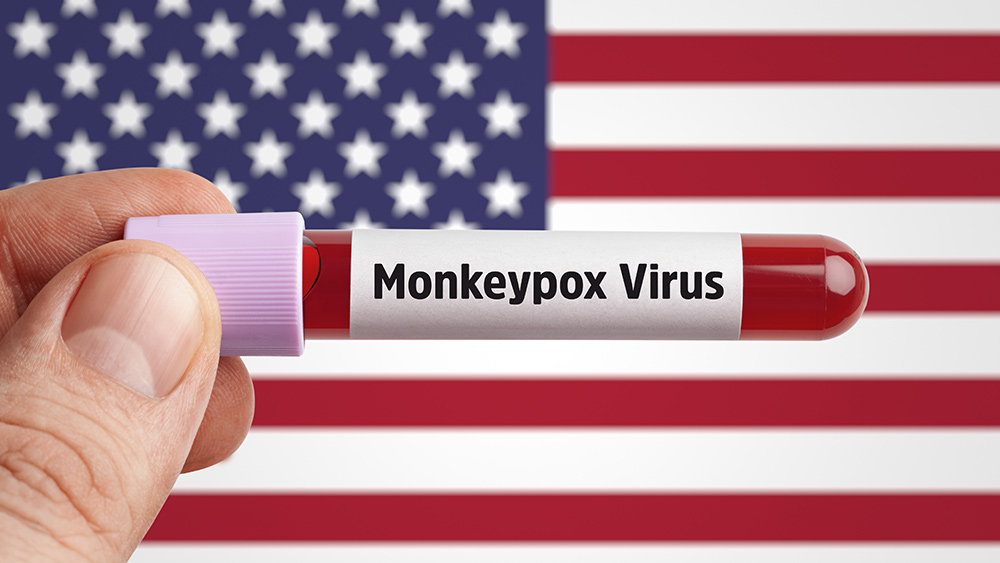Scientists explore the effects of certain phenolic compounds on sirtuins and hepatic inflammation
09/30/2020 / By Evangelyn Rodriguez

Resveratrol is a powerful natural compound that’s known for its heart benefits. Found abundantly in the skins and seeds of grapes, peanuts, cocoa and berries, resveratrol has cardioprotective, antiviral, neuroprotective, antioxidant and anti-inflammatory properties, according to studies.
Piceatannol is a natural derivative of resveratrol that’s also found in fruits and vegetables. Reports suggest that piceatannol has anti-cancer and anti-inflammatory properties and offers benefits for people with hypercholesterolemia, atherosclerosis and cardiovascular disease.
In a recent study, South Korean researchers compared the effects of piceatannol and resveratrol on parameters that affect inflammation, oxidative stress and sirtuins (Sirt). Sirt are a large family of enzymes believed to be responsible for the cardiometabolic benefits of lean diets and exercise. When upregulated, Sirt proteins have also been found to delay certain aspects of aging.
The researchers reported their findings about piceatannol and resveratrol in an article published in the Journal of Medicinal Food.
Piceatannol and resveratrol have their own advantages
Piceatannol is a natural hydroxylated analog of resveratrol and is considered a potential metabolic regulator. To compare its effects with that of resveratrol, the researchers tested both compounds on 20-week-old mice.
The researchers assigned the mice to four groups: the lean control, the high-fat diet control, the group fed a high-fat diet plus piceatannol and the group fed a high-fat diet plus resveratrol.

At the end of the study, they reported that administration of 10?mg/kg/day piceatannol and resveratrol for four weeks improved glucose control in the animals, as evidenced by decreasing levels of area under the curve (AUC) during an oral glucose tolerance test.
Piceatannol improved blood glucose control by increasing the levels of insulin receptor and AMP-activated protein kinase (AMPK) in the mice’s livers. AMPK is a major regulator of cellular and whole-body homeostasis that helps balance nutrient supply and demand.
Piceatannol also increased Sirt1, Sirt3 and Sirt6 levels, as well as the levels of two downstream targets of Sirt, namely, peroxisome proliferator-activated receptor gamma coactivator 1-alpha (PGC-1a) and forkhead box O1 (FOXO1). PGC-1a helps provide a more efficient pathway for energy production, while FOXO1 is the main target of insulin signaling and regulates metabolic homeostasis in response to oxidative stress.
Resveratrol, on the other hand, downregulated the expression of the inflammatory markers interleukin (IL)-1 and IL-6 in the mice’s livers. The researchers also found that piceatannol and resveratrol significantly decreased the levels of the pro-inflammatory molecule, tumor necrosis factor-alpha (TNF-a), in the liver. However, both exerted minimal effects on liver markers of oxidative stress. Only mice treated with resveratrol showed improved levels of NAD(P)H:quinone oxidoreductase 1 (NQO1), a known antioxidant enzyme.
Based on these findings, the researchers concluded that piceatannol is superior to resveratrol in terms of regulating Sirt and its downstream targets, while resveratrol is superior to piceatannol in terms of suppressing pro-inflammatory markers and increasing antioxidant levels. (Related: Piceatannol aids weight management, helps prevent obesity, found in red grapes and wine.)
Other health benefits of piceatannol and resveratrol
Being a derivative of resveratrol, piceatannol offers similar health benefits to resveratrol. Some of the most notable ones include:
- Improves metabolic parameters and glucose metabolism
- Reduces vascular tone (blood vessel constriction)
- Promotes collagen synthesis
- Reduces ultraviolet damage to the skin
- Lowers blood sugar
- Increases stamina
- Lowers blood pressure
- Increases mitochondrial respiration in muscle tissue
However, research suggests that piceatannol has a higher activity than resveratrol. In terms of its heart benefits, scientists have also found that piceatannol’s effects on the cardiovascular system is mediated by its antioxidant and anti-inflammatory properties. Both resveratrol and piceatannol are now sold as dietary supplements.
To learn more about the health benefits of these phytonutrients, visit Phytonutrients.news.
Sources include:
Submit a correction >>
Tagged Under:
alternative medicine, anti-inflammatory, antioxidants, blood glucose control, blood sugar, inflammation, natural cures, natural medicine, oxidative stress, phytonutrients, piceatannol, prevent diabetes, remedies, research, resveratrol, sirtuins
This article may contain statements that reflect the opinion of the author


















